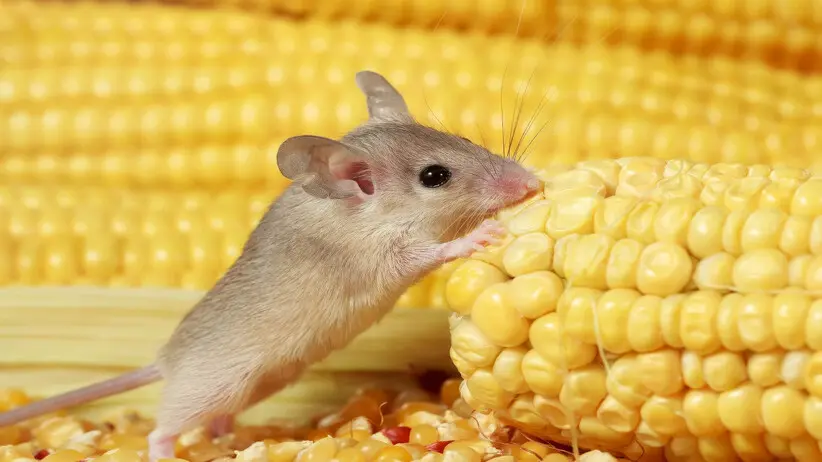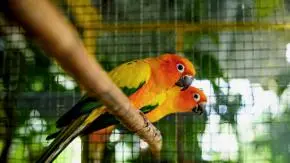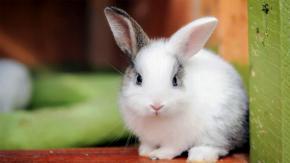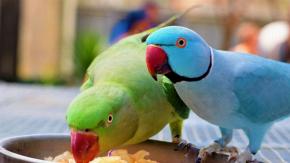Caring for pet mice requires understanding their dietary needs. Due to their small size, mice have very specific nutritional requirements. Mice are omnivores. This means they eat plants, seeds and grains but will also eat insects when possible!
In this post, we’ll explore the best foods for mice and discuss staple foods and occasional treats. The goal is to give owners the knowledge to nourish their mice with a balanced diet.
Basic Nutritional Needs of Pet Mice
Pet mice require a diet that meets their basic nutritional needs. Their diet should be protein-rich, usually around 18-20% of their total intake.
Protein is essential for growth, maintenance and repair of muscle and other tissues. Their diet must also be relatively high in fibre, around 5-10%, to promote proper digestion.
Fats should make up around 5% of their diet to supply energy. Perhaps most importantly, mice need a constant source of complex carbohydrates to fuel their energetic lives. Foods like mouse lab blocks or muesli provide balanced nutrition to meet these requirements.
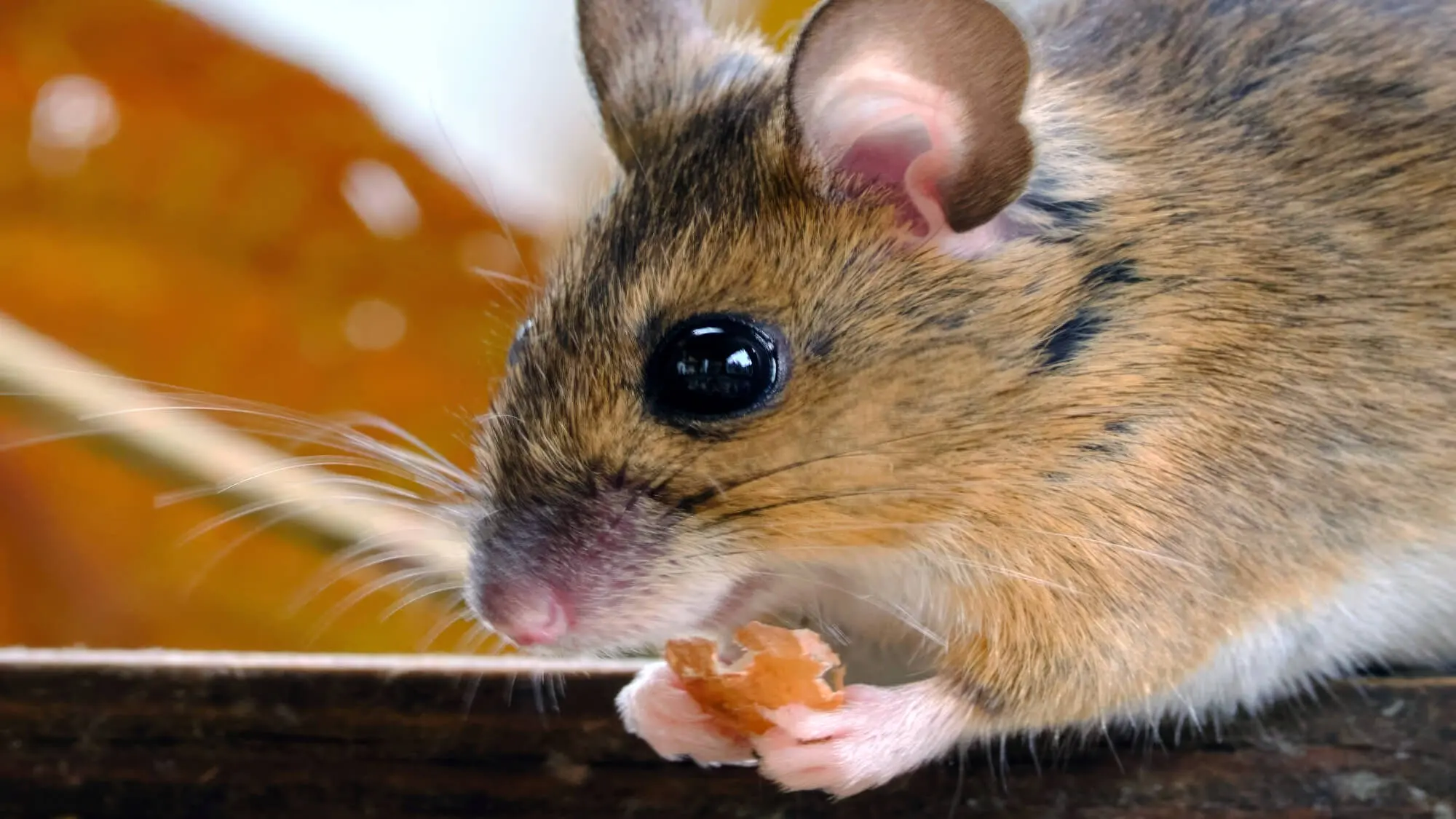
Commercial Mouse Food
While homemade diets can be suitable for mice, commercial mouse food formulas provide a convenient, nutritionally complete option. These pellets or blocks are formulated to meet all of the nutritional needs of mice without the hassle of measuring and mixing individual ingredients. Some popular types of commercial mouse food include:
Mouse lab blocks
As they chew on these dense blocks, mice have to work more to obtain nutrition. This promotes dental and physical health through the natural chewing exercise.
Commercial mouse muesli
Similar to lab blocks but formulated with a mix of ingredients like nuts and seeds, which are high in fat. Mice get variety through foraging different components of the muesli.
Mouse food pellets
Small, soft pellets are easier for mice to eat but don’t provide as much chewing exercise as blocks or muesli. Good for elderly or ill mice.
Specialty mouse diets
Formulations designed for different life stages or optimal health needs, such as high-fibre diets for nursing mice or low-protein diets for mice prone to bladder stones.
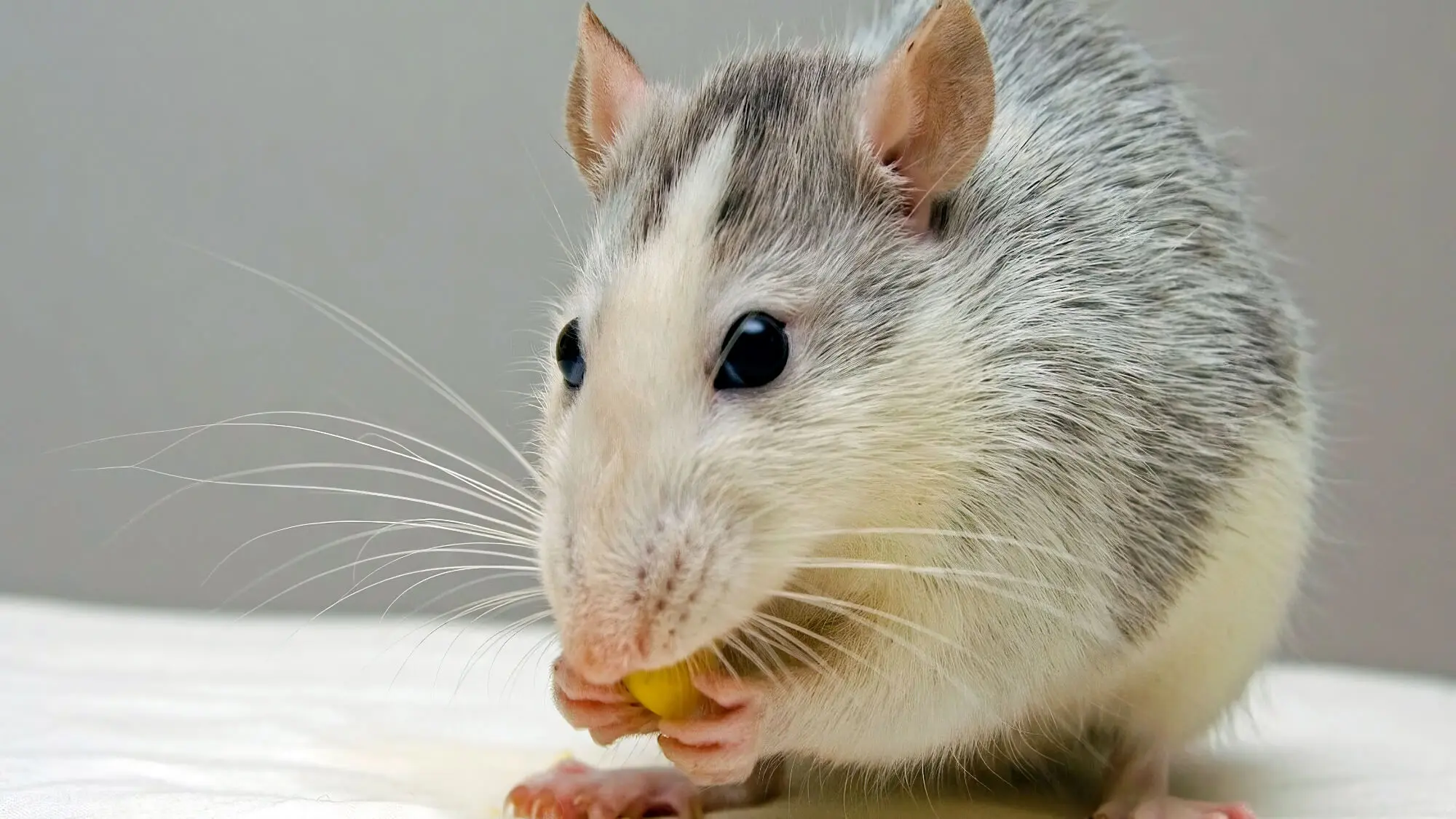
Organic mouse food
Made without synthetic additives, it offers a natural feed for mice. However, thorough nutrition is still prioritised over organic certification alone.
Treat mixes
Foods containing tiny healthy tidbits of ingredients like grains, nuts or dried fruit that mice enjoy as occasional variety from their normal diet.
Gel-based foods
Mice lap these foods, which don’t leave behind messy crumbs that could impact their respiratory health if inhaled. Good for older or post-surgery mice.
How Much and When to Feed Your Pet Mouse
It’s important to follow a regular feeding schedule for mice to support their health and metabolism. In general, mice should be fed 1-2 times per day and given continuous access to water.
As a guideline, feed juvenile mice around 1/8 to 1/4 teaspoon of food per mouse daily. Adult mice consume roughly 1/4 to 1/2 teaspoons each day.
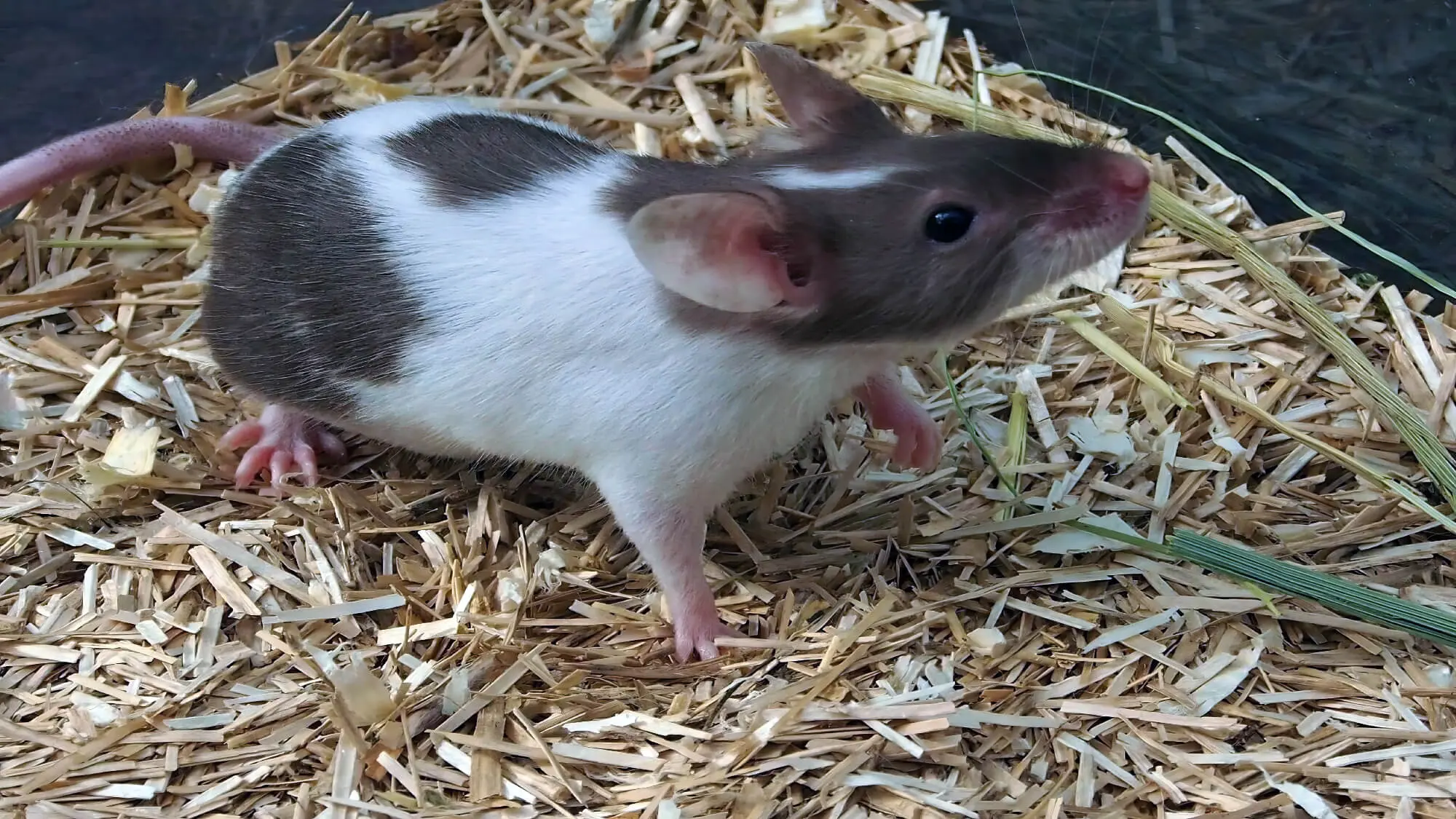
The amount may need to be adjusted depending on the individual mouse’s activity level, size and life stage. Food should be placed in deep containers that prevent crumbles from being kicked out of the cage.
Limit floor space covered by food to prevent selective eating and promote activity. It’s best to remove any unfinished food after 30 minutes to keep the cage clean.
Fresh Fruits and Vegetables for Mice
While commercial mouse food is formulated to meet all of a mouse’s nutritional needs on its own, offering a small variety of fresh fruits and vegetables can help enrich their diet and replicate natural foraging behaviours.
Good options to offer include strawberries, blueberries, raspberries, blackberries, melon pieces, banana or apple slices (in small amounts due to higher sugar content), carrot shreds, green beans, broccoli florets, cabbage pieces, zucchini or squash slices.
It’s important to wash all thoroughly to remove any pesticides or bacteria. Fruits and vegetables should also be peeled when possible and cut into very small, peanut-sized or smaller pieces to prevent choking hazards.
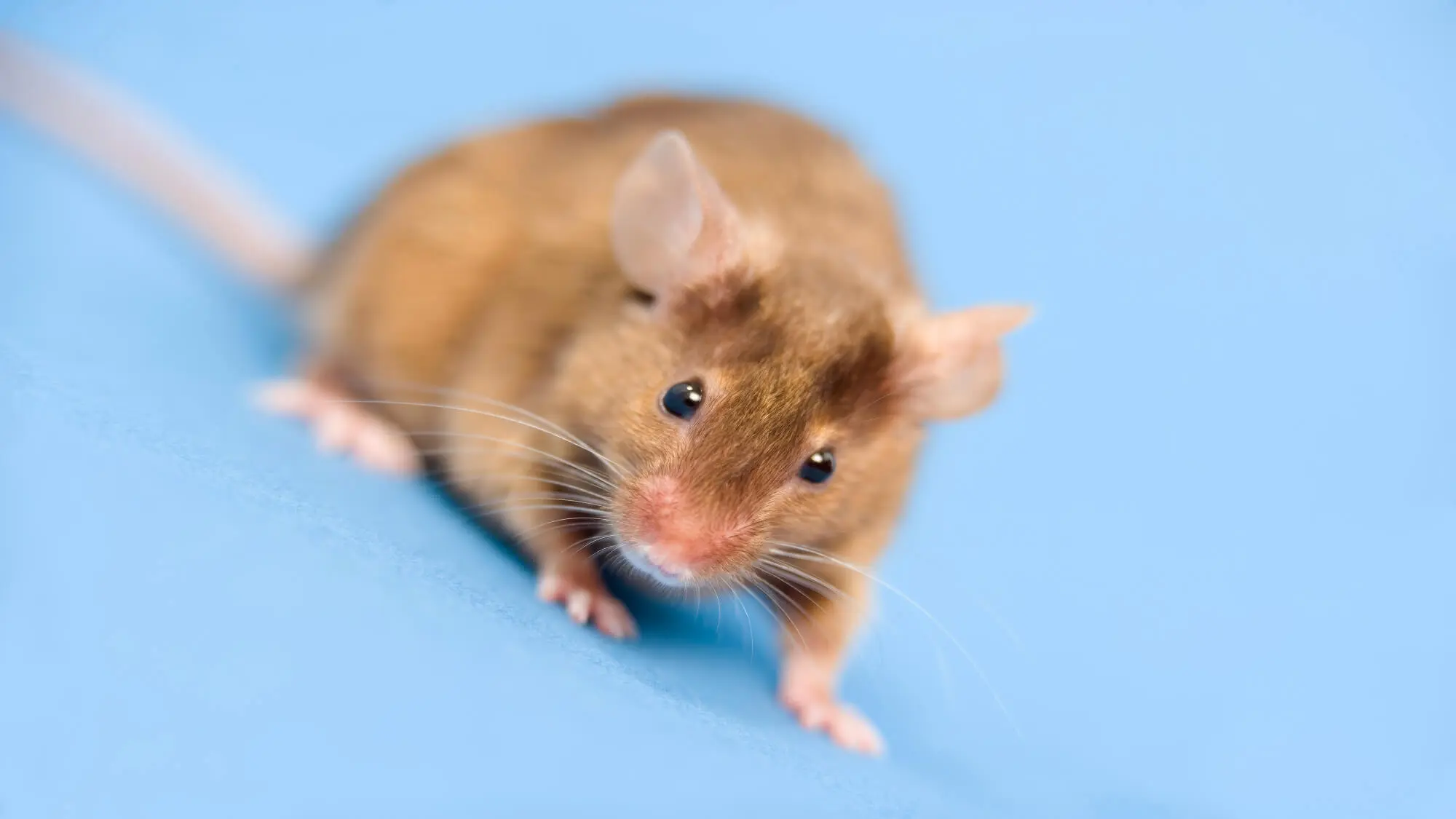
Mice can easily choke on foods that are too large. Only offer fresh items once or twice a week, making sure they comprise at most 10% of the mouse’s total weekly food intake. Monitor that the pieces are quickly eaten, and keep all leftovers in the cage, as uneaten fresh foods can rapidly go bad.
Providing fresh foods in a separate small bowl also helps prevent contamination of the main food supply. With small portions and proper supervision, treats like fruits and veggies can add variety to your mouse’s diet while allowing them to engage in natural foraging behaviours.
Nourishing Your Furry Friend
This blog post provided useful information about developing a balanced, nutritious diet for your pet mice. Understanding their specific nutritional needs and what foods are most suitable will help you keep your furry little companions happy and have a long and healthy life.
While homemade mixes can work, high-quality commercial options like lab blocks, mazes, and pellet formulations from reputable brands offer a convenient way to make sure mice get complete and proper nutrition.
As a long-standing pet retailer, Planet Pet carries various brands of small animal foods, including mouse-specific diets, treats, and accessories. They make sure supplies meet optimal standards as backed by veterinary research. Browse selections in-store or online for everything needed to nourish mice properly.
For mouse guardians seeking out a reliable source for feeding and care items, Planet Pet invites consideration. As a business dedicated to pets' well-being, they aim to give mouse companions the best care.
Proper nutrition plays a key role in long; happy pet mice lives full of activity. Trust Planet Pet to provide nutrient-rich foods and supplies that support health. Their commitment ensures finding total mouse care solutions in one trusted location.

